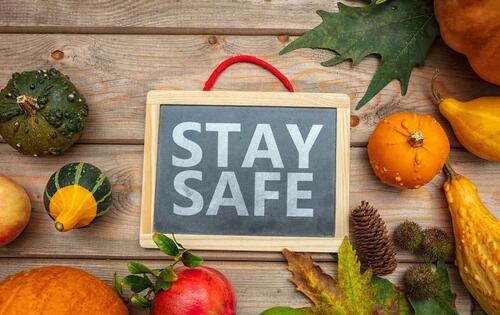Insuranceopedia reviewed national datasets from the NSC, FEMA, NFPA, NHTSA, and the CDC to analyze accident trends surrounding Thanksgiving. The results show that Thanksgiving surpasses Christmas, Memorial Day, and even the Fourth of July in several key danger categories.
-
Thanksgiving is the most dangerous U.S. holiday for fires, with a 388% spike in home fires.
-
Thanksgiving week car crashes killed 2,525 people from 2020–2024, more than any other major holiday.
-
40% of all injuries on Thanksgiving Day come from structural fires.
“Most people think of Thanksgiving as a low-risk holiday, but the data paints the opposite picture," Says Max Coupland, CEO of Insuranceopedia.
"Between rushed travel, long cooking hours, and unfamiliar foods around curious pets, it’s a perfect storm for accidents. Our goal is to help families stay safe and avoid the kinds of claims we see spike every November.”
1. Thanksgiving Driving Is Deadlier Than Any Other Major Holiday
Thanksgiving travel may feel routine, but the numbers tell a different story:
-
2,525 people were killed in car crashes over Thanksgiving week from 2020–2024 — higher than Christmas, Labor Day, July 4th, and Memorial Day. (Source: National Safety Council)
-
36% of all Thanksgiving week traffic fatalities involve a drunk driver. (Source: NHTSA)
-
8% of all annual car accident injuries occur during Thanksgiving week alone. (Source: National Safety Council)
Experts say the deadly combination of alcohol, rushed travel, and congested roads makes Thanksgiving week uniquely hazardous.
Driving Safety Tips For Thanksgiving
-
Give yourself extra time so you don’t feel pressured to speed.
-
Stay overnight or limit alcohol consumption.
-
Avoid distractions and focus fully on the road.
-
When possible, avoid peak travel times during the most dangerous days of Thanksgiving week.
2. Thanksgiving Is the No. 1 Day of the Year for House Fires
Thanksgiving isn’t just the biggest cooking day of the year — it’s also the most dangerous.
-
Thanksgiving Day sees an average of 1,500 reported fires — 388% higher than the daily average. (Source: NFPA)
-
1,446 home cooking fires were reported on Thanksgiving Day 2023 alone. (Source: NFPA)
-
40% of all Thanksgiving Day injuries come from structural fires. (Source: FEMA USFA)
-
Residential fires on Thanksgiving cause five deaths each year on average. (Source: FEMA USFA)
-
Most incidents happen between 10 a.m. and 5 p.m., during meal prep. (Source: FEMA USFA)
The #1 cause of fires on Thanksgiving? Unattended cooking.
Fire Safety Tips For Thanksgiving
-
Stay in the kitchen while cooking, especially when frying or simmering.
-
Keep kids and pets away from hot surfaces and kitchen tools.
-
Test smoke alarms before starting holiday meal prep.
-
Keep floors clear to avoid dangerous slips while handling hot items.
-
Ensure cords from appliances aren’t dangling or accessible to children or pets.
3. A Hidden Danger: Food Poisoning from Mishandled Turkey
Foodborne illness spikes every Thanksgiving, and improper turkey preparation is a major culprit.
-
78% of people rinse their raw turkey, spreading bacteria around their sink and countertops. (Source: CDC)
-
Even after cleaning, 14% still have lingering contamination in or around the sink. (Source: CDC)
Food Safety Tips For Thanksgiving
-
Thaw the turkey far enough in advance and cook thoroughly.
-
Refrigerate leftovers within 2 hours.
-
Cut large portions into smaller pieces so they cool safely.
-
Eat leftovers within 3–4 days, or freeze them.
-
Always reheat leftovers to 165°F (74°C).
"Thanksgiving should be a time for connection, not catastrophe." Says Max Coupland.
"A few simple precautions can prevent the kinds of accidents that turn a celebration into an insurance claim. The goal isn’t to scare people, it’s to help families enjoy the holiday safely and avoid unnecessary risks.”
